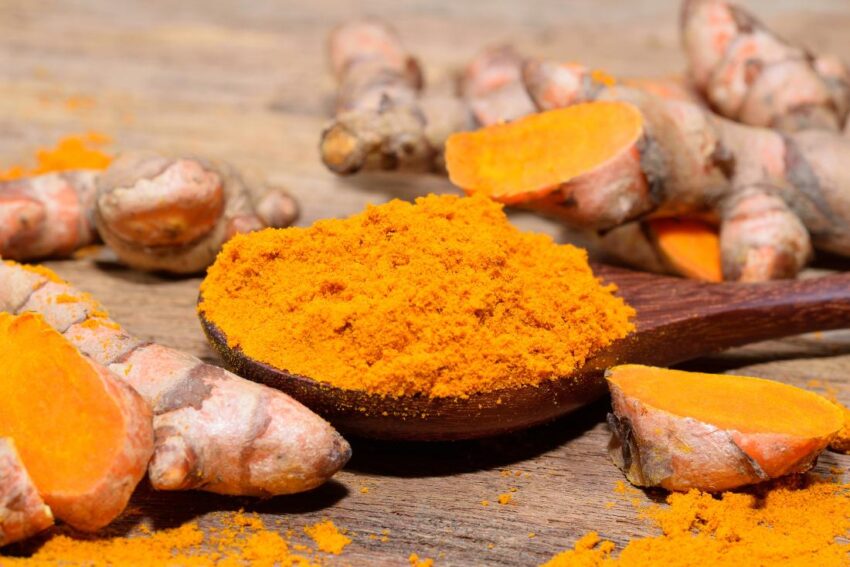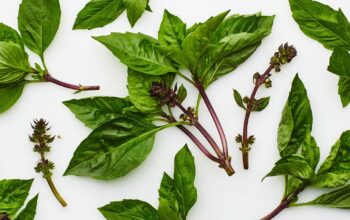Inflammation is a natural process that the body undergoes to heal itself. However, chronic inflammation can lead to a host of health issues, such as arthritis, heart disease, and cancer. Over-the-counter anti-inflammatory drugs such as ibuprofen and aspirin are commonly used to alleviate inflammation, but they come with side effects such as gastrointestinal problems and increased risk of heart attack and stroke. Fortunately, there are natural anti-inflammatories that are effective and have no side effects. In this article, we will explore the best natural anti-inflammatories that you can incorporate into your diet.
Understanding Inflammation

Before delving into the best natural anti-inflammatories, it’s important to understand what inflammation is and how it works. Inflammation is the body’s natural response to injury, infection, or damage to cells. The process is designed to help the body heal itself by removing harmful stimuli and initiating the tissue repair process. However, when inflammation becomes chronic, it can lead to tissue damage, pain, and disease.
Turmeric
Turmeric is a spice that has been used in traditional medicine for thousands of years. It contains curcumin, a powerful anti-inflammatory compound that is effective in treating a variety of conditions, including arthritis, heart disease, and cancer. Curcumin works by blocking the activity of inflammatory enzymes in the body, which reduces inflammation and swelling.
Ginger
Ginger is another spice that has been used in traditional medicine for centuries. It contains gingerol, a compound that has anti-inflammatory and antioxidant properties. Studies have shown that ginger can reduce inflammation in the body, particularly in people with osteoarthritis and rheumatoid arthritis. It can also help alleviate nausea and vomiting.
Garlic
Garlic is a member of the allium family, which includes onions, shallots, and leeks. It contains sulfur compounds that have anti-inflammatory properties. Garlic is effective in reducing inflammation in the body, particularly in people with osteoarthritis.
Omega-3 Fatty Acids
Omega-3 fatty acids are essential fats that the body cannot produce on its own and must obtain from food. They have anti-inflammatory properties and be effective in reducing inflammation in the body. Omega-3 fatty acids are found in fatty fish such as salmon, mackerel, and sardines, as well as in flaxseeds, chia seeds, and walnuts.
Green Tea
Green tea is a popular beverage that has been shown to have many health benefits, including anti-inflammatory properties. It contains catechins, a type of antioxidant that has been shown to reduce inflammation in the body. Studies have also shown that green tea can reduce the risk of heart disease, stroke, and certain types of cancer.
Dark Leafy Greens
Dark leafy greens such as spinach, kale, and collard greens are rich in vitamins and minerals and have anti-inflammatory properties. They contain antioxidants such as vitamin C and beta-carotene, which have been shown to reduce inflammation in the body. They are also rich in fiber, which helps reduce inflammation in the gut.
Berries
Berries such as strawberries, blueberries, and raspberries are packed with antioxidants and have anti-inflammatory properties. They contain anthocyanins, a type of antioxidant that has been shown to reduce inflammation in the body. Studies have also shown that berries can improve cognitive function and reduce the risk of heart disease.
Olive Oil
Olive oil is a staple in the Mediterranean diet and has been shown to have many health benefits, including anti-inflammatory properties. It contains oleic acid, a type of monounsaturated fat that has been shown to reduce inflammation in the body. Olive oil also contains antioxidants such as polyphenols, which help reduce oxidative stress and inflammation.
Pineapple
Pineapple is a tropical fruit that contains bromelain, a mixture of enzymes that have anti-inflammatory properties. Bromelain is effective in reducing inflammation and swelling, particularly in people with osteoarthritis and rheumatoid arthritis. Pineapple also contains vitamin C, which has antioxidant properties and helps boost the immune system.
Nuts
Nuts such as almonds, walnuts, and pistachios are rich in protein, fiber, and healthy fats, and have anti-inflammatory properties. They contain monounsaturated and polyunsaturated fats, which help reduce inflammation in the body. Nuts also contain antioxidants such as vitamin E, which help reduce oxidative stress and inflammation.
Conclusion
Incorporating natural anti-inflammatories into your diet can help reduce inflammation and improve your overall health. Turmeric, ginger, garlic, omega-3 fatty acids, green tea, dark leafy greens, berries, olive oil, pineapple, and nuts are all excellent sources of natural anti-inflammatories that you can easily incorporate into your meals. However, it’s important to keep in mind that while natural anti-inflammatories are generally safe, they may interact with certain medications. Consult with your healthcare provider before incorporating any new supplements or foods into your diet.




